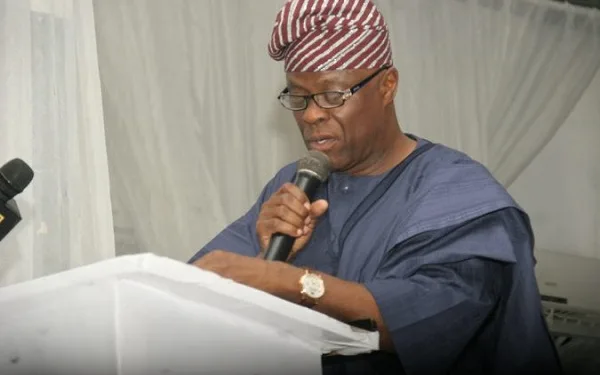Nigerian finance minister, Wale Edun has blamed former President Muhammadu Buhari for the high inflation the country is currently experiencing.
Edun, during an interface with the Senate Committee on Finance, stated that Buhari printed N22.7 trillion through the Central Bank of Nigeria’s (CBN) Ways and Means overdraft for the Federal Government from 2015 to 2023.
According to the Minister of Finance, and Coordinating Minister of Economy, during the period, the printing of money in trillions was carried out without any corresponding productive activities.
Edun maintained that the consequence of the eight years of printing money without productivity is the high inflation confronting the country now.
His words: We talked about inflation, and you have helped to solve that. Where has it come from?
It came from the eight years of just printing money not matched by productivity. It’s not like when you earn dollars and you free the naira alongside it, although there’s even a better way than that. But that’s still not as bad.
It’s not as if the money is matched by productivity increase in output. It is not. And what happened was that for eight years, the weak were left to their own devices. It is the privileged few that took everything.
You distinguished senators have helped. You have given us the mandate to raise N7tn, which we will do by sucking money from the market, using it to pay back the central bank and giving the government a balanced book. We are going to audit even the N22.7tn printed aimlessly.”
Edun made this statement two weeks after the Senate resolved to probe the N30 trillion Ways and Means overdraft obtained and spent by the Buhari administration.
It stated that the alleged reckless spending of the overdraft collected from the CBN under its former Governor, Godwin Emefiele largely accounted for the food and security crises facing the country.
The Red Chamber then resolved to set up an Ad -hoc committee, to investigate the overdraft because the details of the spending were deliberately not made available to the National Assembly.
Understanding Ways and Means
The CBN’s Ways and Means Committee manages the critical function of regulating the printing of money for government loans. This process involves the issuance of short-term loans to the government to cover budget deficits. Through the Ways and Means facility, the CBN effectively acts as a lender of last resort to the government.
READ ALSO: Lagos Raises Alarm over Estate Violations
The Committee monitors and controls the amount of money printed to prevent excessive inflationary pressures on the economy. It sets limits on the amount of funds the government can access through this mechanism, ensuring that it does not lead to the over-expansion of the money supply.
The CBN employs various monetary policy tools to manage the Ways and Means facility, such as adjusting interest rates and implementing open market operations. These measures help regulate liquidity in the financial system and maintain price stability.
The Buhari legacy Nigerian minister of finance hinted about…
During former President Buhari’s eight-year tenure, Nigeria’s currency experienced a significant depreciation of 57.45% against the dollar in the official foreign exchange market. Buhari, who left office last year’s May, had pledged in 2015 to stabilize the naira when he was campaigning for office.
At the CBN’s official window in May last year, the naira weakened by 264 points, representing a 57.26% decline, reaching N461 per dollar as of May 16, 2023, compared to N197 per dollar when Buhari assumed office in 2015.
The pressure on foreign exchange persisted in the parallel market, where the naira depreciated by 37.58% (N280), with the exchange rate reaching N745 per dollar as of Wednesday, May 17, 2023, as opposed to N465 per dollar in 2016.
These developments, experts believed, was a result of mismanagement, and corruption under the Buhari-led government.










